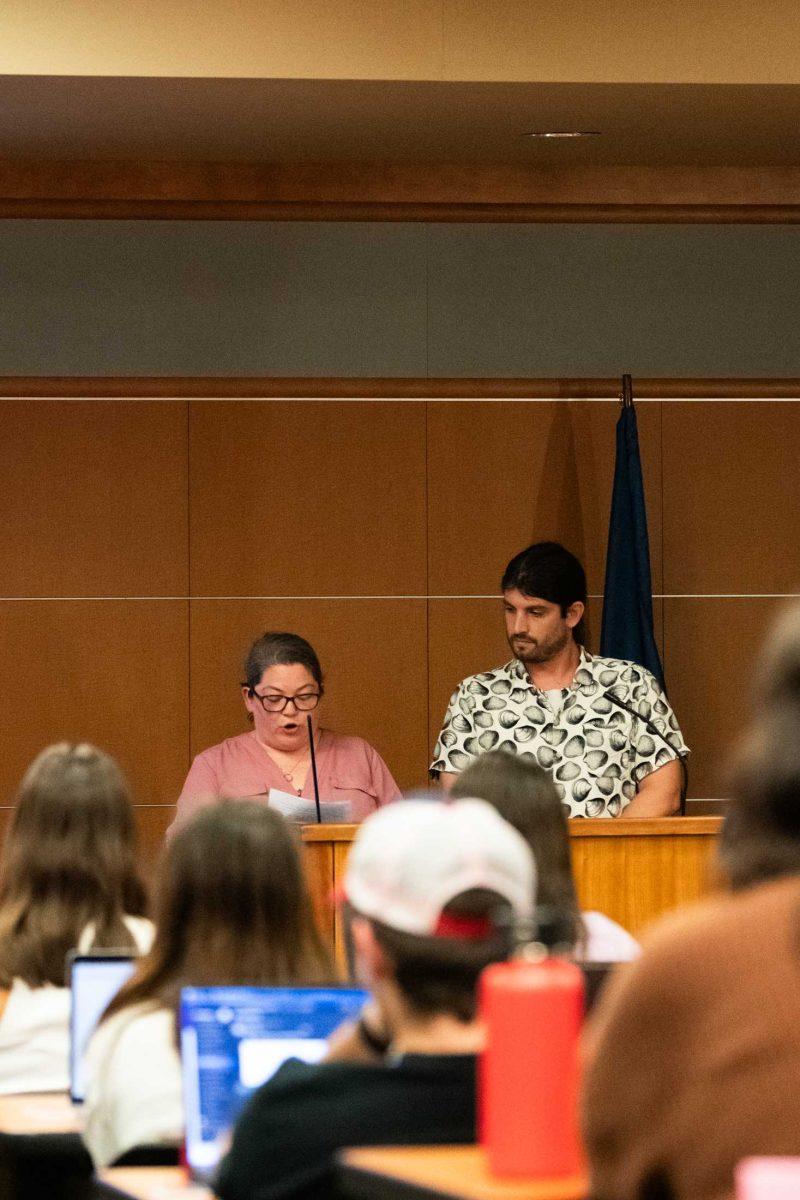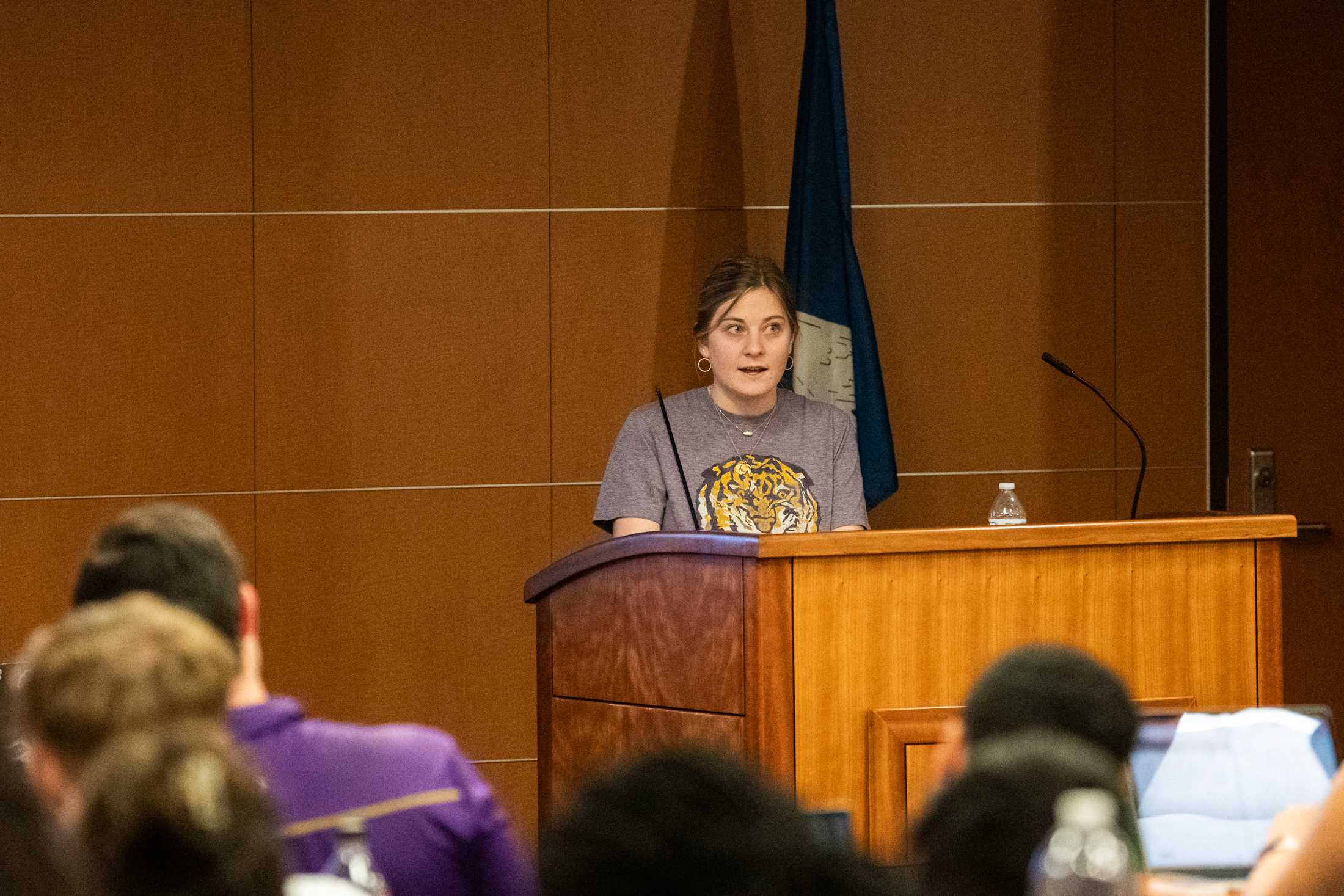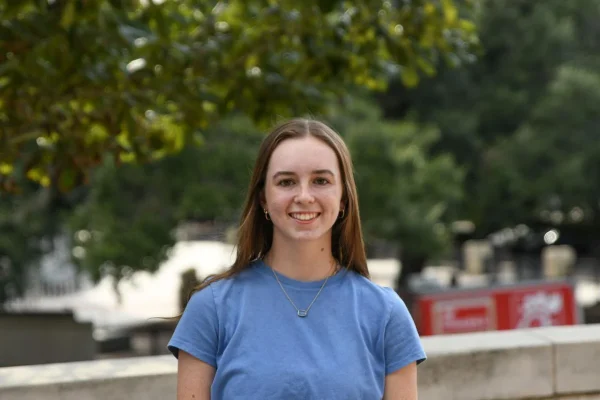LSU’s Student Senate voted on Wednesday to override the Student Government president’s veto of a resolution condemning Attorney General Jeff Landry for missing a gubernatorial forum held on campus.
Landry was the only major candidate for governor not in attendance at the forum held at the Student Union on Sept. 13. Instead, he was at an event in Bossier City with Donald Trump Jr.
The resolution called Landry’s absence “a detriment to the electorate” and slammed his “conscious decision to participate in a hyper-partisan rally instead of an organized debate with his actual opponents.”
Though the Senate passed the resolution overwhelmingly one week earlier — with 43 votes in favor, three against and six abstentions — senators seemed less eager to push the condemnation past the veto. 23 voted in favor of overriding, seven voted against and 20 abstained.
The Senate needed a two-thirds majority to override Strong. Those abstaining didn’t factor into that fraction.
Strong’s veto, issued Friday, drew quick opposition. The resolution authors — graduate student Sens. Alicia Cerquone and Cullen Hodges — told the Reveille they “fundamentally disagree with President Strong on the role of the Student Government.” LSU College Democrats revoked their endorsement of Strong from the spring election.
When the Senate opened the floor for public input at the beginning of its Wednesday meeting, Debate LSU, the main organizer of the gubernatorial forum, weighed in on the controversy. Strong is the communications director of the organization, according to an August Instagram post.
READ MORE: The Reveille’s opinion section tries Louie’s Café
Jake Netterville, who serves as secretary, read a letter from the organization’s president, Harper Doerr.
In his letter, Doerr expressed gratitude for SG’s partnership in putting on the forum but voiced fears that the resolution could dissuade candidates from participating in a similar event in the future.
“SGR 3 threatens the possibility of an event like this happening again in the future as it has completely overshadowed the event and its successes,” Doerr wrote. “If a candidate cannot decline an invitation due to a scheduling conflict without proposals being written to publicly condemn them, will this not compromise the legitimacy of the Forum?”
He also felt it was wrong to label Landry’s absence from the forum as a “refusal.” Doerr explained that “Landry declined his invitation to our Forum due to a previously scheduled event … that conflicted with the Forum.”
In her veto letter sent to the speaker of the Senate, Strong said, “I must veto SGR 3 due to its nature as political commentary.” She maintained that position in her opening remarks before the Senate, saying it wasn’t appropriate for SG to take a position.
Strong emphasized alternative ways for LSU students to exercise their voice by voting and encouraging civic education.
Strong opted not to take questions at the end of her statement.
“Do I have to?” she said before walking away from the podium.
In defense of their resolution, Cerquone and Hodges cited a long list of times the Senate has taken political stances in representation of the student body.
“This legislation is inherently political. . .and that’s the point,” Cerquone said.
Cerquone emphasized the influence that governors hold over LSU, citing the buildings Gov. Huey Long got built and the higher education budget Gov. Bobby Jindal slashed. She also pointed out that the governor appoints the Board of Supervisors, the body tasked with managing the university.
And in Hodges’ eyes, Landry did not simply miss the governor’s forum at LSU because he was elsewhere; he chose to be elsewhere.
“We know what Jeff Landry was doing on the night of the debate. It’s in the bill,” Hodges said. “We know what choice he made. Was it possible for him to choose differently? We submit, yes. Did he? No. What he chose to do deserves our consideration and our judgment, as does the behavior of every single governor’s candidate. This is not a matter of policy. This is a matter of principle.”
When the floor opened for general debate, four senators took the podium in sequence. All four expressed opposition to the veto.
“A governor candidate with the power to make decisions that directly affect the future of every student on this campus is something that is inherently in the interest of every student on this campus,” said Sen. Ethan Elmer, who represents the University Center for Freshman Year. “This is not the opposition of the candidate, this is the opposition of the calculated disenfranchising of LSU students through the natural and expected avenue of public forum that this candidate did not participate in.”
In their closing remarks, Cerquone and Hodges urged the Senate to override Strong’s veto.
“We as a body do have the ability to make that decision, and we as a body should make that decision as for all of our constituents that we represent,” Hodges said.
To not vote for the veto would be to “sell yourself short on what you’re capable of doing as a Student Government senator,” Hodges said.
He referenced the alternative ways, mentioned earlier by Strong, that SG can motivate the student body to be politically active, “but what say we walk and chew bubblegum?” Hodges asked. “Is that a possibility?”
In her closing statement, Strong reiterated the other methods, besides the resolution, SG could use to enfranchise campus.
“Until we walk, and we all walk, I think we should wait to chew bubblegum,” she said.
Search this table to see how student senators voted on the resolution and the veto override a week later.
This article has been corrected to amend a spelling error in LSU Debate President Harper Doerr’s last name.






